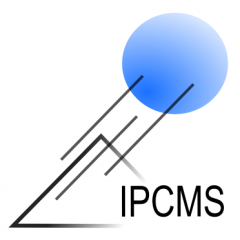The design and development of functional materials has received enormous attention over the past two decades and has profoundly reshaped our daily life as well as human-device interaction. In this context, (multi-)functional molecular materials have attracted great interest due to their enormous potential and their real applications on the market for fields as varied as low-consumption devices and for energy production, biomedical tools and personalized health, quantum and information technologies and the design and synthesis of new molecules using sustainable and more efficient processes (e.g. green chemistry methodologies), to name just a few examples.
By means of an inter- and trans-disciplinary approach which also relies on strong local, national and international collaborative networks, the interdisciplinary Axis 3: “Design and Synthesis of Functional Molecular Systems” of the IPCMS aims to address specific challenges in the field of organic (opto)electronics, biomedicine, molecular catalysis and photo-switchable molecular motors.
The scientific objectives of Axis 3 can be broken down into three different blocks which include functional molecular systems for (opto)electronics and their cutting-edge spectroscopic and microscopic techniques (Axis 3.1), bio-medicine (Axis 3.2) and molecular chirality and its implications (Axis 3.3).
Axis 3.1: Molecular materials for (opto-)electronics: from the molecule to the tools to probe their properties
- – Molecular Systems for the Organic Laser Diode (OLD) (A. d’Aléo, IPCMS-DMO)
- – Molecular materials for circularly polarized emission optoelectronics (M. Mauro, IPCMS-DMO)
- – Molecular materials for red/near infrared light-emitting devices (M. Mauro, IPCMS-DMO)
- – Polycyclic aromatic hydrocarbons with p -extended electron system (B. Donnio, IPCMS-DMO)
- – (Macro-)molecular materials of controlled organization (S. Méry, B. Heinrich, IPCMS-DMO; L. Mager, IPCMS-DON)
- – Luminescent ionic materials (L. Douce, IPCMS-DMO)
- – Hyper-resolved fluorescence microscopy and TERS spectroscopy (G. Schull, F. Scheurer, S. Jiang (post-doc) IPCMS-DSI)
Axis 3.2: Molecular systems for biomedicine
- – Metallo-carbene complexes to fight cancer (S. Bellemin-Laponnaz, A. Maisse, IPCMS-DMO)
- – Luminescent complexes for theragnostic (M. Mauro, IPCMS-DMO)
Axis 3.3: Molecular chirality and its implications
- – Non-linear effects (S. Bellemin-Laponnaz, A. Maisse, IPCMS-DMO)
- – Towards efficient bio-inspired molecular photo-motors (J. Léonard, S. Haacke, IPCMS-DON; M. Mauro, IPCMS-DMO)
